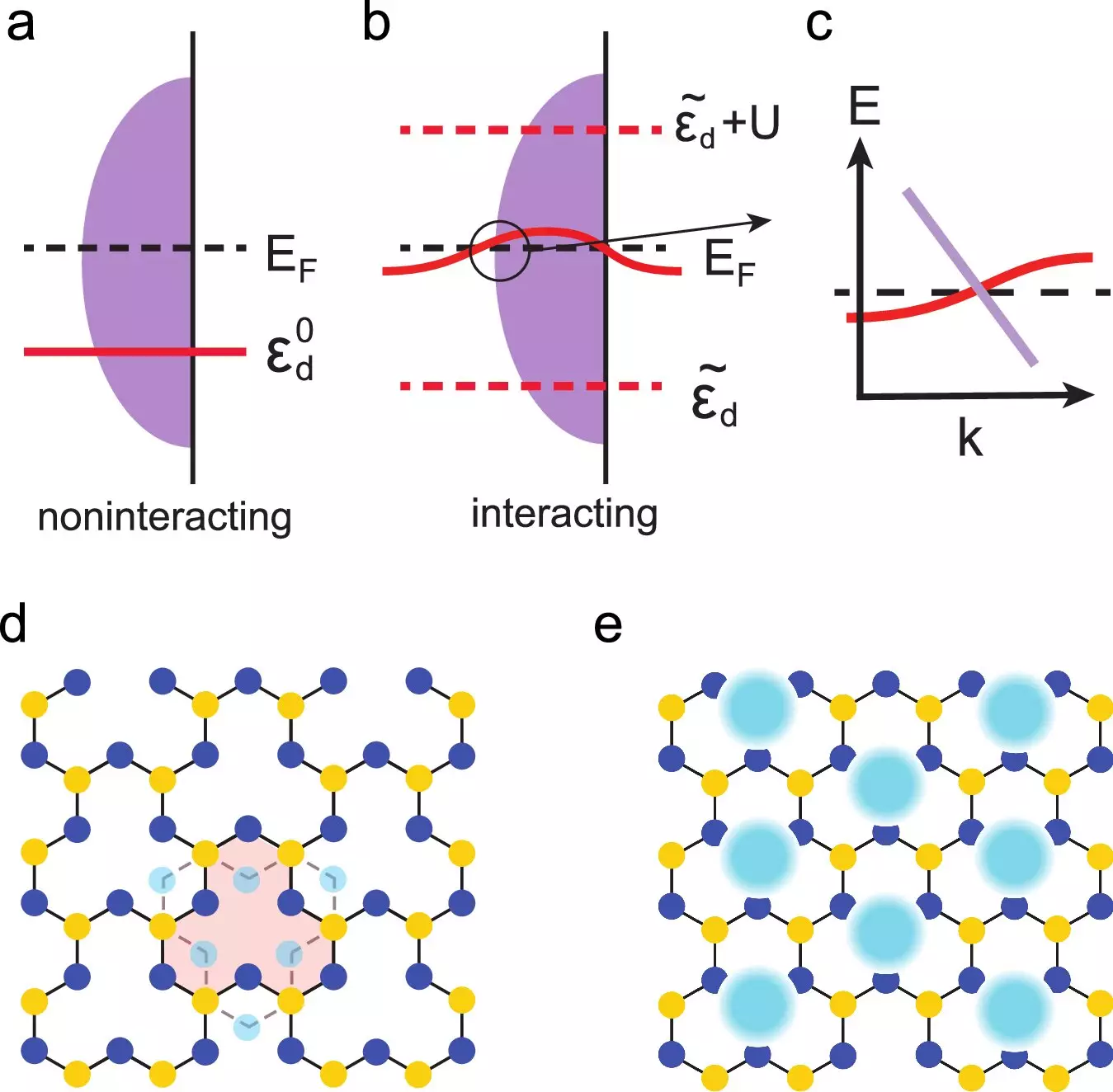In a groundbreaking study recently published in Nature Communications, a team of scientists led by Rice University’s Qimiao Si has made a significant discovery that could revolutionize the field of quantum computing and electronic devices. The researchers have predicted the existence of flat electronic bands at the Fermi level, a finding that holds immense potential for unlocking new forms of quantum computing and electronic devices.
Quantum materials, governed by the principles of quantum mechanics, are characterized by unique energy states occupied by electrons. These states form a ladder structure, with the highest rung known as the Fermi energy. In these materials, electrons interact in correlated ways, leading to the formation of new flat bands at the Fermi level. This discovery is crucial as most flat bands are typically located far from the Fermi energy, thereby limiting their impact on the material’s properties.
Enhancing Electron Interactions
Flat electronic bands have the potential to enhance electron interactions significantly, paving the way for the creation of new quantum phases and unusual low-energy behaviors. This is particularly important in transition metal ions, specifically d-electron materials with specific crystal lattices, where unique properties can be observed. The team’s findings suggest new design possibilities for these materials, which could lead to innovative applications in quantum bits, qubits, and spintronics.
In quantum mechanics, electrons can exhibit quantum interference, where their energy remains flat even as their momentum changes. These flat bands play a critical role in linking immobile and mobile electron states, creating new opportunities for electron interactions. The researchers demonstrated using a theoretical model how these interactions can give rise to a new type of Kondo effect, enabling immobile particles to gain mobility by interacting with mobile electrons at the Fermi energy.
One of the key attributes of flat bands is their topology, which provides a means to realize new quantum states of matter. The flat bands, anchored to the Fermi energy, open up possibilities for the emergence of intriguing phenomena such as anyons and Weyl fermions. Anyons have shown promise as agents for qubits, while materials hosting Weyl fermions could find applications in spin-based electronics.
The researchers’ findings indicate that materials with flat bands could exhibit high responsiveness to external signals and enable advanced quantum control. Moreover, the study suggests that these materials could lead to the development of strongly correlated topological semimetals at relatively low temperatures, potentially operating at high temperatures or even room temperature. This opens up new avenues for designing and controlling novel quantum materials that operate beyond traditional low-temperature settings.
The discovery of flat electronic bands at the Fermi level represents a significant advancement in the field of quantum materials and quantum computing. The potential applications of this finding are vast, ranging from quantum bits to spintronics, and could pave the way for the development of advanced electronic devices operating at higher temperatures. The research conducted by Rice University’s team, along with their collaborators, promises to shape the future of quantum computing and electronic devices, unlocking new possibilities for innovation and technological advancement.


Leave a Reply